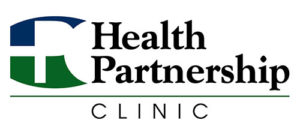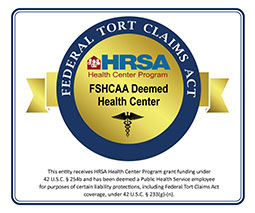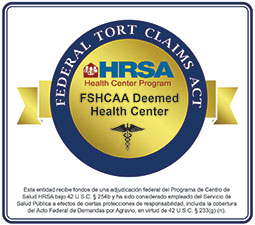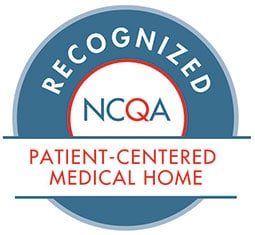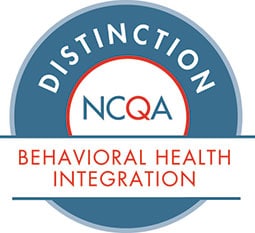June is Oral Health Month: Understanding Cavities and Risks
 By Nader Rastgoftar, DDS, Dental Director and General Dentist at Health Partnership Clinic
By Nader Rastgoftar, DDS, Dental Director and General Dentist at Health Partnership Clinic
Cavities are one of the most common dental concerns that I see at Health Partnership Clinic. Even the most diligent brushers and flossers can end up with a cavity. June is National Oral Health Month, and it serves as a reminder of the importance of good oral hygiene, including education.
No matter what your age, it is vital to see a dentist regularly and get a thorough check up twice a year. When the dentist finds signs of tooth decay, it is important to treat it immediately so you can prevent pain, limit the damage and minimize unnecessary costs.
Examples of good oral hygiene habits are brushing your teeth after every meal and before bedtime, flossing and using mouth rinse daily. Additional steps that we can take to prevent tooth decay are limiting foods, drinks and snacks which contain high amount of sugar, avoiding tobacco products, understanding the process leading to tooth decay and the risks to our oral health.
Baby teeth start to form between 3-6 months of pregnancy. The food and dietary choices that we make not only can affect our oral health outcome, but it also affects our children’s teeth development.
What causes Cavities?
 Bacteria, food particles and saliva combine in the mouth to form a sticky substance called plaque, which sticks to the teeth. Plaque begins to build up on teeth within 20 minutes after eating. If it is not removed, the bacteria in the plaque converts sugar from foods (carbohydrates) to acid which damages the enamel of the teeth, causing cavities.
Bacteria, food particles and saliva combine in the mouth to form a sticky substance called plaque, which sticks to the teeth. Plaque begins to build up on teeth within 20 minutes after eating. If it is not removed, the bacteria in the plaque converts sugar from foods (carbohydrates) to acid which damages the enamel of the teeth, causing cavities.
An untreated cavity can destroy the tooth pulp (nerve and blood supply of the tooth) and lead to a infected tooth (dental abscess). An untreated tooth with dental abscess can potentially result in tooth loss. I always recommend drinking water and eating healthy opposed to consuming carbohydrates which increase the risk of tooth decay. Sticky foods are more harmful than non-sticky foods because they remain on the teeth. In addition, frequent snacking increases the time that acids are in contact with the surface of the tooth.
How do you Prevent Cavities?
Here are some ways that can help prevent cavities:
- Minimize snacking, which creates a constant supply of acid in the mouth.
- Avoid constant sipping of sugary drinks, carbonated drinks or frequent sucking on candy and mints.
- Chewy, sticky foods (such as dried fruit or candy) are best if eaten as part of a meal rather than as a snack.
- Brush at least twice a day for two minutes, after eating.
- Use American Dental Association (ADA) accepted fluoride toothpaste to prevent cavities.
- Replace your toothbrush every three months or whenever the bristles show sign of wear.
- Floss at least once a day. After each meal is best!
- Schedule regular dental cleanings every six months.
How do you Treat Cavities?
 Prompt treatment of cavities is important in preventing further damage to your tooth or an infection. A dental examination can identify cavities, and an X-ray may help to determine the extent of the cavity between the teeth.
Prompt treatment of cavities is important in preventing further damage to your tooth or an infection. A dental examination can identify cavities, and an X-ray may help to determine the extent of the cavity between the teeth.
In the case of toothache due to large cavities, over-the-counter pain relievers, such as ibuprofen (Advil, Motrin) or acetaminophen (Tylenol), may make you more comfortable until the cavities are treated by your dentist.
Dentists remove the decay from tooth using small burs, and restore it with material such as silver alloy, gold, porcelain, or composite resin. Today, most dentists use porcelain or composite resin—which is like the color tooth.
Severe cavities may require extensive dental work, including root canal therapy, crown or tooth extraction.
Your Oral Health
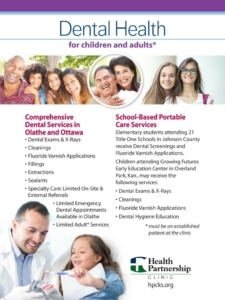 Oral health can have an impact on your overall wellbeing so this June consider the preventative steps you can take to make sure your mouth and the rest of your body are healthy throughout the year.
Oral health can have an impact on your overall wellbeing so this June consider the preventative steps you can take to make sure your mouth and the rest of your body are healthy throughout the year.
Health Partnership provides comprehensive dental services in Olathe and Ottawa, Kan. to children and limited adults who are established patients. Services include dental exams, cleanings, fluoride varnish applications, fillings, extractions, etc. There are limited emergency dental appointments at our Olathe location.
In addition, we offer school-based portal care services. We currently visit 21 Title One Schools in Shawnee Mission and Olathe School Districts and provide dental screenings and fluoride varnish applications. In addition, we visit with children attending Growing Futures Early Education Center in Overland Park, Kan. and provide dental exams and x-rays, cleanings, fluoride varnish applications and dental hygiene education.
To schedule a dental appointment, call 913-648-2266 today. To learn more about our other services, visit us at hpcks.org.
